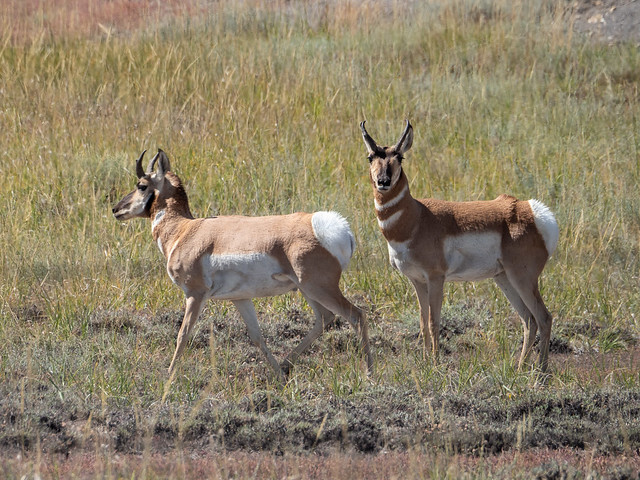Decentralized Energy in SK, Jan. 6 (online)
Join the Energy Management Task Force of Saskatchewan for an online discussion of decentralized energy in Saskatchewan at 7:30 am, Jan. 6.
Caribou & Wolf Monitoring, Jan. 8 (online)
Ryan Brook will discuss minimally invasive caribou and wolf monitoring along Hudson Bay at 3:30 pm, Jan. 8, as part of the Wild Ecol Seminar Series.
Songs 4 Nature, Jan. 8 (online)
Songs 4 Nature, a Royal Saskatchewan Museum program helping musicians to connect with nature and hone their songwriting skills, will be accepting registrations from SK residents for its virtual winter camp starting Jan. 8. Registration will open to everyone on Jan. 12.
Get Outside Nature Hike, Jan. 9 (Regina)
Nature Regina is offering guided nature hikes at A E Wilson Park at 10, 10:30, and 11 am, Jan. 9. Register online.
Farmland Drainage & the Environment, Jan. 11-15 (online)
Don’t miss the second half of the online webinar series on farmland drainage and the environment. The first series of webinars are now available on YouTube.
Regina library card holders are invited to join a Zoom session on help and inspiration for parents who want to get their kids outdoors at 7 pm, Jan. 12. Spaces are limited; register online.
Get Outside! Kids’ Club, Jan. 13/20 (Regina)
Children ages 6-12 are invited to register for the Get Outside! Kids’ Club from 10 am-3 pm, Jan. 13 or 20.
Prussian Carp, Jan. 14 (online)
There will be a webinar on prussian carp at noon, Jan. 14, as part of the Native Prairie Speaker Series.
Women & Water, Jan-Apr (online)
Global Water Futures is offering an online lecture series on women and water:
12:30 pm, Jan. 14 – Water Policy
Projet Wet, Jan. 14 (online)
There will be an online workshop in French on Project Wet from 4-6 pm, Jan. 14.
Going Outside, Jan. 14 (online, repeat)
SaskOutdoors is repeating their 30-minute webinar with tips and tricks for teachers who want to move learning outdoors at 8 pm, Jan. 14.
Saskatoon Nature Society Field Trips
Saskatoon Young Naturalists
Jan. 16 – Pike Lake Nature Walk
Feb. 6 – Chickadee Pishing
Space is limited; register early to avoid disappointment.
Other Saskatoon Nature Society Field Trips
Jan. 16, 10-11:30 am – Chorney Acreage Bird Feeders
Jan. 23, 9 am-3 pm – Snowy Owl Excursion
Field trips are currently for members only, so sign up now. Advance registration is required.
A full list of upcoming events (online and in person) can be found on the EcoFriendly Sask Calendar
A new battery recycling program will make it easier for people in various parts of Saskatchewan to dispose of household batteries responsibly.
800 acres of mainly native prairie grassland near Weyburn have been donated to the Saskatchewan Wildlife Federation’s Habitat Trust Fund.
An Alberta farmer is restoring wetlands, practising agroforestry, and planting cover crops for improved pollination.
Borealis, a new documentary about Canada’s boreal forest, reveals how much trouble it’s in.
From Information to Action
“If we bring down CO2 to net zero, the warming will level off. The climate will stabilize within a decade or two. There will be very little to no additional warming.”
“The only thing a consumer can do to improve their laptop's ecological and economic sustainability is to use it for as long as possible.”
Even after replacing gasoline vehicles with electric ones, particulate matter resulting from tire, brake, clutch, and road wear remains a significant source of hazardous pollution.
This will be the world’s largest Passive House-certified office building.
That’s Amazing!
Dung beetles navigate by the sun, the moon, and the stars.
From monkey-faced spiders to oil spill beetles and a candy corn leafhopper – the beauty and science of our planet's micro creatures.
EcoSask News is a weekly round-up of local news and events. Email us if you have items you would like us to include.
You can follow EcoFriendly Sask by liking us on Facebook, following us on Twitter, or by email (top right corner).
Did you know? Pronghorn are the second-fastest animal in the world with amazing endurance thanks to long legs and a large heart and lungs. They can sprint up to 70 mph.



